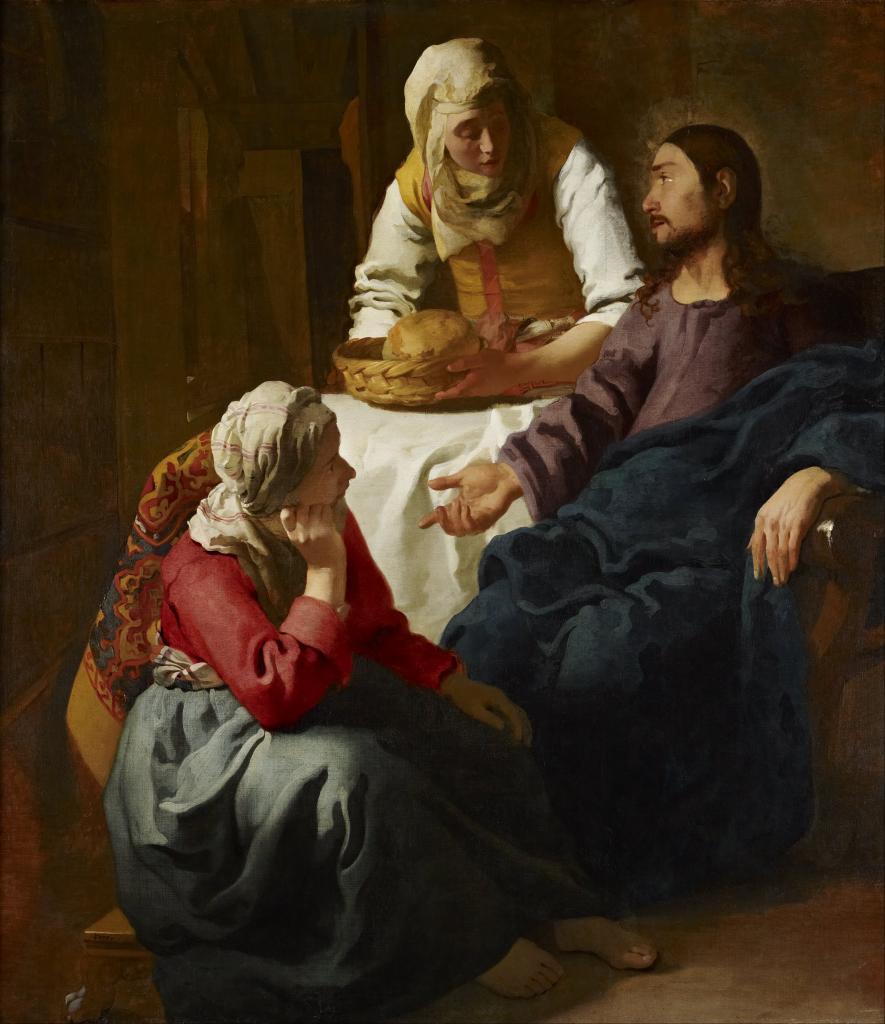 Vermeer’s Christ in the House of Mary and Martha.
Vermeer’s Christ in the House of Mary and Martha.
A recent article in a Duke publication relates the story of the scholarly work of Elizabeth Schrader at Duke on a medieval codex of the Fourth Gospel, which reflects name changes in places where Mary and Martha are mentioned together. Here is the article link—-
https://today.duke.edu/2019/06/mary-or-martha-duke-scholars-research-finds-mary-magdalene-downplayed-new-testament-scribes
I have no problems at all with the thesis that there was anti-feminist bias on the part of some scribes when it comes to the roles of women in the NT texts, such that they changed the text to suit their bias. In fact, I demonstrated how the Western Text of Acts was guilty of this very thing, long ago [“The anti-feminist tendencies of the Western text in Acts,” JBL 103 (1984), 82-84]. But Schrader’s theory is that the name changes she found in this late Johannine codex reflects an attempt to slight Mary Magdalene. There are several problems with this theory: 1) the very same codex highlights Mary Magdalene’s role from the crucifixion through the first resurrection appearance of Jesus to her; 2) it is surely more logical, if one is dealing with John 11-12, to suggest that it is Mary of Bethany, rather than Mary Magdalene who’s name is being replaced by the scribe with the name Martha. The reason for such a change is easy to see. If one takes account of Lk. 10.38-42 and the way Mary and Martha are portrayed there, Mary is portrayed as a disciple who has chosen the better part of listening to Jesus, rather than preparing lunch, which is what Martha is portrayed as doing. One can readily conceive of a scribe who didn’t like the notion of women rejecting traditional female roles in favor of sitting at Jesus’ feet, as Mary is portrayed as doing. In short, there is no need to bring Mary Magdalene into the conversation of John 11-12. That Mary was from Magdala in Galilee, not from Bethany in Judaea (see now the recent detailed and helpful study of Magdala by Richard Bauckham (Baylor Press, 2018).












